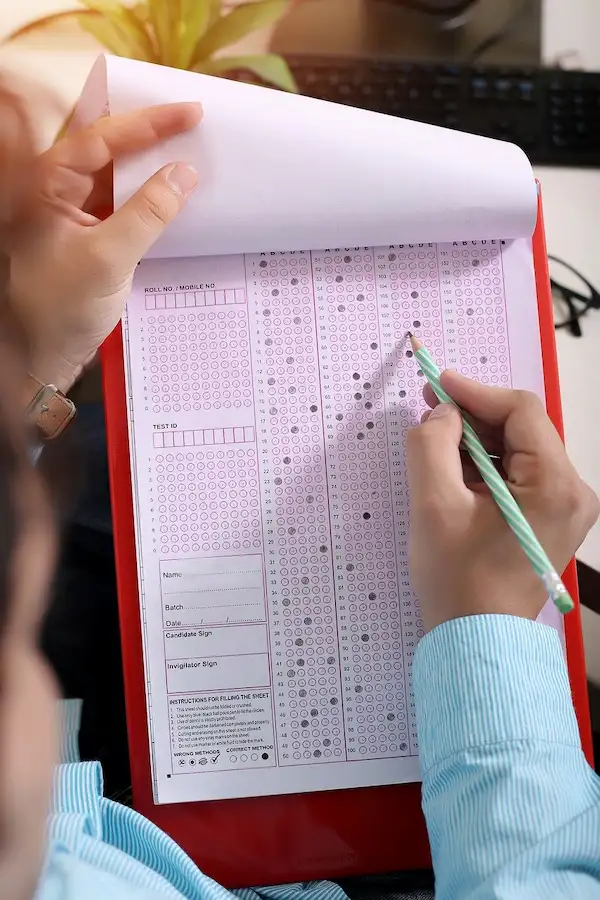Neuropsychological Assessment
What is this service?
A neuropsychological assessment is a comprehensive evaluation that examines how well different parts of your brain are functioning. It involves a series of standardized tests, which can include paper-and-pencil tasks, construction activities, or digital exercises. These tests assess various mental abilities, such as memory, attention, language, and problem-solving skills.
The assessment helps identify strengths and weaknesses in brain function and guides personalized treatment or support. Our center offers both Brief and Extended Assessments, depending on the individual’s needs.
Which cognitive domains are being examined?
The specific cognitive domains examined during a neuropsychological assessment vary based on the individual’s needs. However, common areas include attention, memory, language, executive functions (like planning and decision-making), visuospatial skills, processing speed, motor skills, and social cognition. In total, we can assess over 30 different brain functions.
The cognitive domains examined in each evaluation differ according to the request, and we examine more than 30 brain functions. Click here to view some indicative functions and their importance for everyday life.
What type of tools are being used?
In a neuropsychological assessment, we use a variety of tools to evaluate brain function. These tools include:
Standardized Paper-and-Pencil tests: Traditional tests that involve writing, drawing, or problem-solving tasks to assess different cognitive abilities like memory, attention, and reasoning.
Computerized tests: Digital assessments that measure cognitive functions such as reaction time, attention, and information processing speed with precision.
Constructive tasks: Activities that involve building or manipulating objects, which help assess visuospatial abilities and problem-solving skills.
Questionnaires and surveys: Self-report or caregiver-report forms that gather information on mood, behavior, and daily functioning.
Observation and interviews: Clinical interviews and behavioral observations conducted by the neuropsychologist to gather contextual information and understand the impact of cognitive issues on daily life.
Which is the procedure I have to follow?
- The procedure you need to follow is as follows:
Contact and Book an Appointment: Start by contacting the center to schedule your evaluation appointment.
Preparation Before the Appointment:
- Ensure you have had adequate sleep before your visit.
- Have something to eat prior to the evaluation.
- Make sure you are feeling good overall (e.g., no headache or illness).
Visit the Center: On the scheduled day, visit the premises for the evaluation
Are your services appropriate for me?
Is this service appropriate for me?
– Yes, if you want a preventive check-up.
– Yes, if you have specific concerns about your cognitive functions.
– Yes, if you want a detailed assessment of your cognitive abilities at a specific time for future reference.
– Yes, if you need a comprehensive evaluation to guide therapy or rehabilitation.
– Yes, if you require a formal report for academic or professional purposes.
– Yes, if you are looking to understand changes in cognitive abilities over time.
What is the duration of the Neuropsychological Assessment?
The Brief Neuropsychological Assessment (BNA) lasts approximately 1 hour and involves the administration of a standardised tool for the preliminary assessment of one’s cognitive quota.
The Extended Neuropsychological Assessment (ENA) is conducted during one or more sessions lasting approximately 1.5 hours each and involves the administration of various standardised tools and tests.
The ENA is superior to the BNA and is preferred when we aim to obtain a comprehensive and complete depiction of the individual’s potential and functional status. Thus, depending on the question being investigated, we administer tests of working and long-term memory, IQ, attention, visuospatial ability, etc. ENA concludes with the compilation of the Neuropsychological Report, a formal document that serves as a reference point for the person’s cognitive status at the given time-point, as a guide for the therapist to know which functions should be exercised during the rehabilitation sessions, and as a supporting document for various services (e.g., school, army) which require a formal report of one’s functionality.

Indicative Instruments
Intellectual Quota:
- Wechsler Adult Intelligence Scale (WAIS-IV): A comprehensive test used to measure intellectual ability in adults.
Dementia-Cognitive Decline:
- Mini-Mental State Examination (MMSE): A brief test used to screen for cognitive impairment.
- Montreal Cognitive Assessment (MoCA): A tool used to detect cognitive impairment.
- Addenbrooke’s Cognitive Examination (ACE): A tool used to detect cognitive impairment.
Executive Function:
- Stroop Test: Assesses the ability to inhibit automatic reactions and cognitive interference.
- Ruff 2 & 7 Selective Attention Test: Measures attention and concentration.
- Trail Making Test: Evaluates processing speed, sequencing, and cognitive flexibility.
Visuospatial Ability:
- Medical College of Georgia Complex Figure Test: Tests the ability to understand and reproduce complex shapes.
- Rey-Osterrieth Complex Figure Test: Assesses visuospatial constructional ability and visual memory.
- Cookie Theft Picture Test: Evaluates visuospatial skills and language abilities.
- Visual Neglect Tests: Detects the presence of neglect of one side of space.
- Judgment of Line Orientation: Measures spatial orientation and perception.
Memory:
- Greek Verbal Learning Test: Assesses verbal memory and learning.
- Story Recall Test: Evaluates the ability to recall and retell stories.
- Fuld Object Memory Test: Measures recall of everyday objects.
Our Services
Knowledge and Technology in the Service of Cognition
Our services aim to address the entire spectrum of cognitive functionality and health through the application of interdisciplinary approaches supported by current research findings.
Do you have any questions?
We would love to hear from you.
Click the Contact Us button below and tell us your request.
We will reply as soon as possible.
